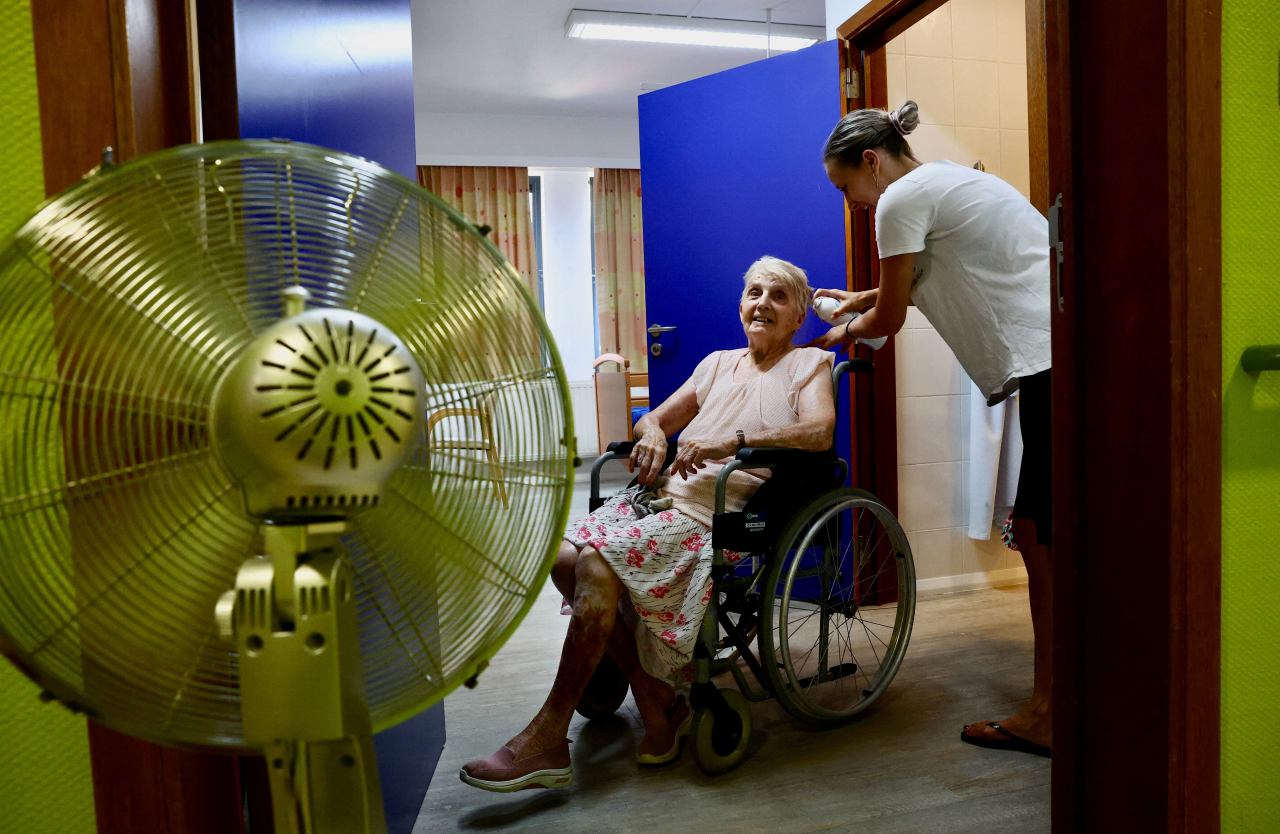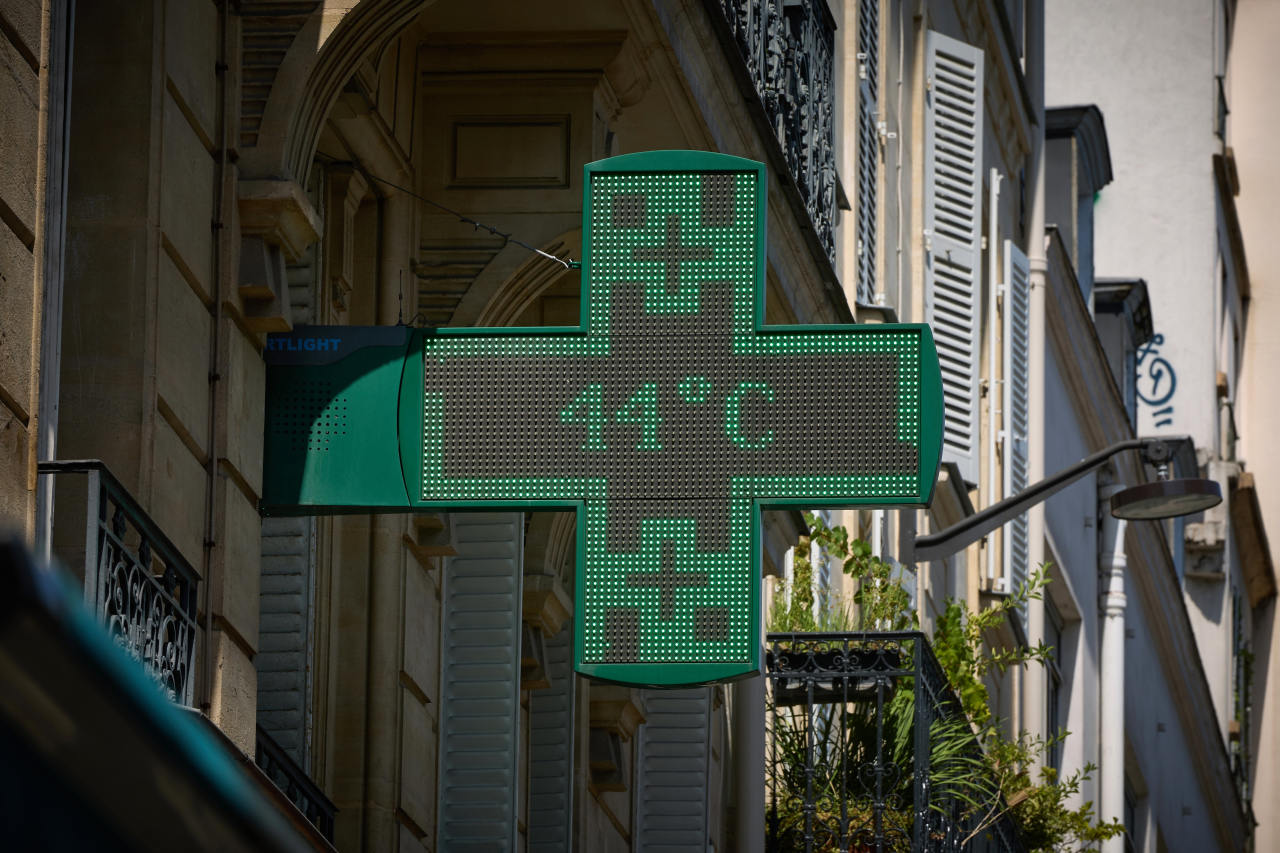
PARIS — Increasing summer heat has made Europeans more open to air conditioning, sparking a fresh political debate on whether to adopt the technology widely, as is common in the U.S.
A extreme heat that affected Western EuropeIn June and July, there was a surge in demand for air conditioners at appliance stores throughout the area. The extreme heat arrived earlier than usual, before many Europeans had the opportunity to head to the beach for their summer break, revealing weaknesses in urban areas where the majority of people reside. Over 1,000 French schools closed either partially or entirely due to the absence of air conditioning.
Soon after, criticism emerged from right-wing politicians who claimed that authorities have left the continent significantly lacking in air conditioning. Marine Le Pen, head of France’s far-right National Rally party, suggested a large-scale initiative to equip schools, hospitals, and other public buildings with air conditioning. In the U.K., the Conservative Party called on London’s Labour mayor to remove restrictions on incorporating air conditioning into new residential developments. In Spain, the far-right Vox party has been pointing out air conditioning failures to attack the country’s mainstream political parties.
Public services are struggling to operate without air conditioning, a situation not seen in many countries globally,” Le Pen stated. “The government remains disconnected from reality.
French officials have delayed action. Energy minister Agnès Pannier-Runacher stated that widespread air conditioning would increase street temperatures due to the heat from the units, exacerbating heatwaves. “It’s a poor approach,” she mentioned to reporters during the recent heatwave, standing next to the sweating prime minister, François Bayrou. “We should provide air conditioning for those who are at risk to offer them some relief, but we shouldn’t implement it everywhere.”
The most severe heat is the top concernclimate-change danger facing Europe, damaging the continent’s previously mild summers with heatwaves that are occurring more often and with greater intensity. Coping with this is anticipated to demand significant investments and a substantial change in European perspectives on air conditioning, which many have traditionally seen as a luxury that Americans overuse.
“Overseas, the difference is noticeable: the United States is spending billions of dollars to upgrade the cooling systems in its schools, while hospitals there are already mostly equipped with air conditioning,” stated a bill introduced by French conservatives this month, which aims to mandate the installation of air conditioning in institutions throughout the country.

The idea of U.S.-style air conditioning makes some Europeans uneasy. In France, media sources frequently caution that lowering a room’s temperature by more than 15 degrees Fahrenheit compared to the outside temperature can lead to “thermal shock,” which may cause vomiting, fainting, and even breathing failure. This would come as a surprise to Americans who typically keep indoor temperatures around 75 degrees, even when it’s nearly 100 outside.
Some people worry about getting respiratory infections from staying in air-conditioned spaces for extended periods. Europeans who are especially concerned about global warming prefer to minimize the use of electricity for cooling, which would lead to more greenhouse gas emissions.
Nevertheless, the need to remain composed is surpassing this doubt. Europe is the continent that is warming the fastest, having heated up twice as much as the global average since the 1980s, as reported by the World Meteorological Organization. Last month marked the hottest June in Western Europe ever recorded, according to Europe’s Copernicus Climate Change Service.
Experts claim that increased use of air conditioning is essential to avoid thousands of deaths during heatwaves. Beyond the risk of death, residents across Europe, from London to Madrid, are increasingly choosing not to experience another heatwave in a home without air conditioning.
It seems like it’s becoming increasingly hotter each year,” said Sophie Berto, an analyst who has resided in Paris for ten years. Berto finally lost her composure and managed to get the last air conditioner from a home appliance store in central Paris. “Perhaps because I wasn’t present in previous years, but now it’s excessively hot.

Air conditioning is anticipated to significantly boost yearly power consumption in southern Europe—according to one study, Italy could see a rise of approximately 10% by 2050. In northern Europe, the decreased requirement for heating during winter may counterbalance some of the increased energy usage in summer; however, the electricity grid is expected to face new challenges due to government initiatives aiming to substitute natural gas heating with electric heat pumps, which can serve both heating and cooling purposes. These changes are increasing pressure on the continent to secure sufficient renewable energy sources to handle rising demand.
Certain environmentalists and researchers claim that Europe can maintain a comfortable temperature without depending heavily on air conditioning. Adding more vegetation to structures and roadways can help decrease high temperatures in urban areas. Constructing buildings with proper airflow can minimize the necessity for air conditioning, as can using window coverings that prevent sunlight from entering the space.
However, rules that mandate these measures have become a focus in the ongoing political discussion. In London, construction companies are required to incorporate cooling design elements before installing air conditioning in new structures. Andrew Bowie, a member of Parliament from the Conservative Party, recently urged Mayor Sadiq Khan to eliminate “the absurd limitations on air-conditioning units in new developments in London.”
“We need to shift away from this mindset of reducing energy consumption due to poverty,” he stated.
A spokeswoman for Khan stated, ‘The mayor is not prohibiting air conditioning,’ and mentioned that his development plan ‘suggests builders incorporate alternative ventilation methods in new residences, which can assist in reducing energy expenses for families.’
French authorities are looking to increase the use of geothermal heating and cooling systems to eliminate the necessity for conventional air conditioning. These systems function by circulating water from deep beneath the surface, transferring heat from structures into the earth during the summer months and returning it in the winter. This method is far more effective than standard air conditioning and prevents heat from being released into the atmosphere. However, the initial cost can be substantial, potentially making it difficult to implement in buildings that are over a hundred years old, which are frequently found in Europe’s historic cities.
Château Pontet-Canet, a vineyard located near Bordeaux, has implemented a system that functioned effectively during the recent heatwave, keeping the property’s wine tanks, cellar, and offices cool, according to technical director Mathieu Bessonnet.
The environmental issue is whether we should use air conditioning or not,” Bessonnet stated. “Wine is our profession, and we don’t wish to produce vinegar. Therefore, we must use air conditioning… The concept of using energy for air conditioning to achieve comfort is what remains illogical.
Write to Matthew Dalton at[email protected]







